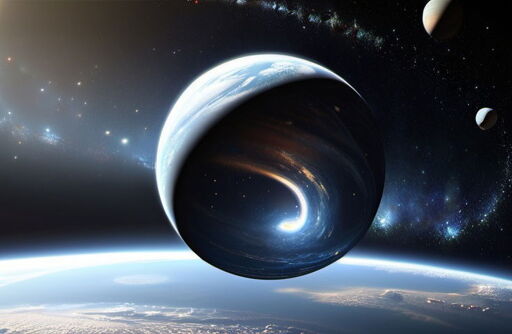Can I get an ELI5?
Disclaimer: I’m not well versed in astrophysics.
Ok, so: you know how Earth is part of the solar system? And the solar system is part of a large collection of stars and planets called a galaxy?
Well, there’s lots of galaxies out there! And scientists for a long time have been trying to figure out how they formed - how did all the stars get close to each other? Why aren’t they just randomly drifting around?
Currently, everyone believes that there’s this magic stuff called “dark matter” that pulled the stars together to make galaxies. Kinda like how magnets pull things close to them!
And because galaxies are so big it would take a long time to pull the stars close together! Which means young galaxies would look less bright because the stars aren’t all close together yet, like they are with older galaxies.
So that’s what everyone believes.
But we’re getting pictures from a really strong telescope that’s showing us that young galaxies are brighter than we expected! Which is weird and exciting because it means that young galaxies might have been pulled together faster than we used to think! And our old theories about galaxy creation might be wrong!
There’s a theory that explains how galaxies could come together quickly, without dark matter, but it doesn’t really fit with many other theories we have about how the world works, so lots of people are thinking really hard to figure out how they might fit together.
And that’s what science is all about! Finding out new information that shows you that you were wrong in the past, and using that information to figure out new ways to act and think in the future!
That’s awesome! Thanks for the explanation!
Thanks for Bill Nye-ing this for me. Appreciate your summary
Ooh new pbs spacetime will be sweet. (Although mond seems kinda meh).
🙏 wrong distance measurement (or light speed shenanigans) would be most fun to observe from outside of astronomy field, although they seemed kinda solid
deleted by creator
Hypothesis, sure. But it needs to hold up to testing better than Lambda-CDM if we’re gonna call it the best hypothesis.
I understood about 8% of that article but it’s still fascinating.
I follow this stuff (as a non-physicist) so I understood it. It’s a pretty shallow article and mentions there there’s still evidence for the widely-accepted Lambda-CDM model. But like most coverage of MOND it declines to give good alternate explanations for specific key observations like the Bullet Cluster, gravitational lensing, and galactic outer rotational speeds.
So yeah a new observation that fits better with MOND than LCDM is certainly interesting, but it doesn’t flip the tables unless it does a better job explaining the prior phenomena too.
I understand the two theories and the difference between them, but when my brain tries to comprehend how gravity actually works I experience a comprehension failure.
Haha, well if it’s any consolation, nobody fully understands it. That’s why we’re still looking at various theories of quantum gravity or even random gravity.
There is no gravity… Earth just sucks…
Is is the theory that little, invisible gremlins are just constantly pulling things down? 🤔
Dr Becky has a few different videos on MOND and what the current (video is from last year) scientific view of it is. Very informative, she’s awesome!









